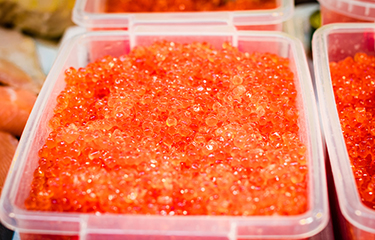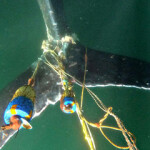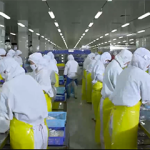Russia cracking down on illegal salmon roe harvests, smuggling

Catch me if you can
Right now, government bodies are discussing a set of measures to tackle the issue of illegal sales. Dankvert and the Russian Federal Service for Veterinary and Phytosanitary Surveillance filed a proposal for the government to introduce a restriction on volume of salmon roe one person can send by any means of transport to anyone.
In case the volume exceeds five kilograms, an electronic veterinary certificate must be obtained which guarantees a high level of quality of the product. While it’s not clear when the government will get down to the issue, there’s little doubt that sooner or later the proposal will be turned into law.
The certificate will likely also catch the attention of fiscal bodies, such as the Russian Tax Service, which will use the information to determine the participants in the trade process. The Tax Service can use the data for their own purposes such as investigating whether any kind of hidden business can be involved.
“We will have our electronic system connected to the Russian Tax Service system,” Nikolay Vlasov, deputy head of Russian Federal Service for Veterinary and Phytosanitary Surveillance, told the media after his visit to Kamchatka in December 2018.
“We will see whether the system of electronic veterinary certification will be enough to track the origin of salmon caviar,” Ilya Shestakov, head of the Russian Federal Agency for Fisheries, said. In case it doesn’t, authorities will consider the possibility of introducing some kind of special mandatory marking on packaging to note origin.
However, due to the skills of Russian people at evading requirements, the electronic certification and marking may prove ineffective. In addition, a long bureaucratic process will take some time, while it’s necessary to act urgently. As SeafoodSource reported, as of start of the salmon season 2019, the Russian government took a serious approach toward illegal fishing of salmon in the Russian Far East by devoting resources to control roads in the area.
The effort even included bringing in additional personnel from other regions to have enough force to cut off any ways of delivering illegally sourced fish. There is hope that these measures will prove successful.
However, as the Rybak Kamchatki newspaper reported, poachers tend to make hideouts to store salmon roe until things calm down and then secretly retrieve it to be transported and sold.
Photo courtesy of Shutterstock






Share